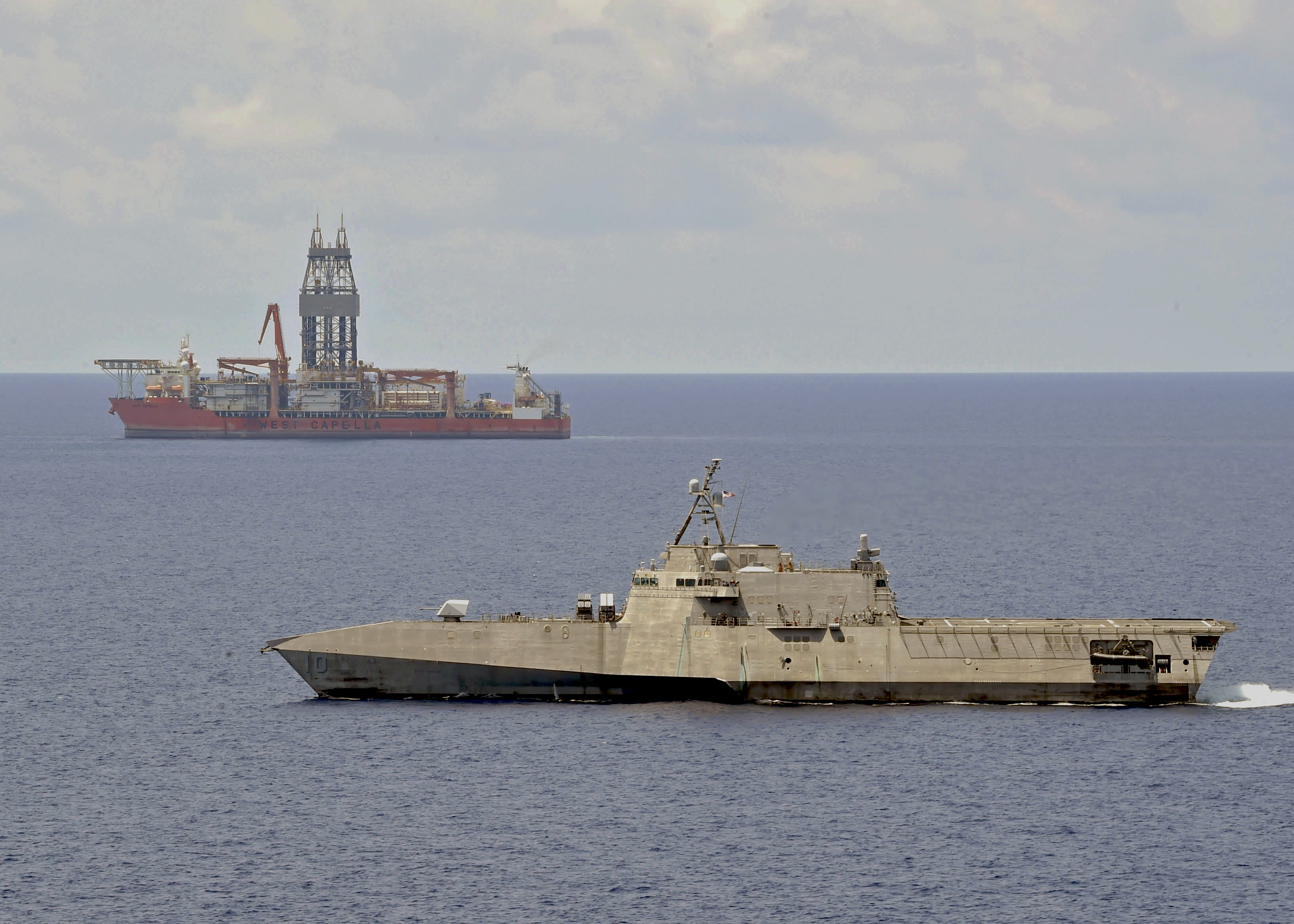
While Washington acknowledges its allies and partners are willing to back a “free and open” Indo-Pacific policy, the keys to American success in confronting Chinese bullying is having smaller nations see a “consistent and reliable” presence from the U.S., according to a former senior diplomat.
Speaking at a Heritage Foundation online webinar, David Stilwell, who from 2019 to early 2021 served as the assistant secretary of state for East Asian and Pacific affairs, said “we should design our policy for speed, not perfection.”
The retired Air Force brigadier general said, the “policy has to be steady” to deter “gray-zone” harassment and military aggression.
If so, the policy with allied support protects smaller nations, like Malaysia, when they face territorial disputes from “swarms” of armed Chinese fishing boats, its naval militia, or Coast Guard.
He specifically referred to the publicly announced shift in American policy in 2020 that Washington “will not let China claim the South China Sea as its own.” In an appearance at a Washington think tank then, he denounced Chinese actions in asserting its claims as “gangster tactics.”
Tensions between Beijing and Washington had been rising for months as the Chinese harassed Filipino fishermen, drove off mineral and energy exploration vessels, and militarized artificial islands it had reclaimed from coral reefs to assert sovereignty in disputed waters.
At that moment, Beijing was defying the international tribunal’s ruling against its extensive claims with the Philippines based on its assertion that the so-called nine-dash line defined China’s historical maritime claims. It was also occurring as the COVID-19 pandemic was spreading rapidly.
“A lot of people [in Southeast Asia] were surprised; a lot of people were happily surprised” by the American change in policy in regards to Beijing’s claims and strong support of Taiwan during a time of health and economic crisis, he said.
When asked whether he expected China to try and enforce its recently announced “quarantine” on fishing in its claimed territories, Stilwell said “I don’t think they have the ability to enforce it.” He noted the domestic challenges it faces in Hong Kong, the international reaction to its treatment of the Uighur Muslim minority and what all that could mean for it hosting the 2022 Winter Olympics.
“You never can fight in all places at all times,” Stilwell said.
USS Gabrielle Giffords (LCS-10) from Singapore early on in the fall of 2019, followed by a beefed-up American Navy presence in response to Chinese actions in the region. The overflight of contested waters by B-52s based at Andersen Air Force Base, Guam added another dimension to show China that the United States was a global power with interests in the Indo-Pacific.
“Doesn’t matter what the boat is,” the fact that the LCS was there in a day made it clear to the Chinese “this is not internal, domestic waters” and the United States has a right to be there, as does the survey ship, he said.
The actions of allies in the Indo-Pacific and in Europe adds to the message of “no more” excessive claims. Stilwell specifically praised Australia for standing firmly with the United States at this time. China imposed massive tariffs on Australian coal, steel and wine to pressure Canberra to back off. Instead, “they sent ships” – as did the United Kingdom, France and Germany – to keep international maritime sea lanes open.
“It’s because of [the Australians] that we’re having this discussion today” of effectively countering the Chinese in the South China Sea and also in thwarting its attempts to rein in Taiwan, Stilwell said.
China remains Australia’s largest trading partner.
Stilwell also noted Vietnam’s role, as chair of the Association of South East Asian Nations, in bringing China to the negotiating table to write a code of conduct for maritime behavior in the South China Sea.
Yet, despite the Biden administration’s support of the “free and open Pacific” policy and increased naval presence, Stilwell said many Southeast Asian nations still hedge their bets when it comes to Chinese-American competition.
He quoted an old maxim as still being true: “China for prosperity; U.S. for security.”





